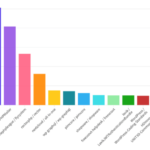 PHP is a popular programming language with a vast user base, but it’s not without its detractors. There are various reasons why people dislike PHP, and in this section, we’ll take a closer look at some of its negative aspects. From criticisms of PHP coding to the sentiment among PHP developers, we’ll explore the reasons for PHP dislike.
PHP is a popular programming language with a vast user base, but it’s not without its detractors. There are various reasons why people dislike PHP, and in this section, we’ll take a closer look at some of its negative aspects. From criticisms of PHP coding to the sentiment among PHP developers, we’ll explore the reasons for PHP dislike.
Despite its popularity, why do people hate PHP?
Complex Syntax
One of the most significant critiques leveled against PHP relates to its syntax, which some view as complex. The syntax can be quite overwhelming for beginners, making it harder to learn and understand. This difficulty has led some to suggest that other languages may be better suited for novice programmers.
Consider the following code snippet in PHP:
<?php
if ($a == 5) {
echo "a equals 5";
}
?>While not overly complicated, some find the structure of the code to be challenging to follow. This complexity can lead to confusion and mistakes in code development and maintenance.
Despite these challenges, many developers still prefer PHP’s syntax, and it continues to be a widely used language in web development.
Inconsistent Function Naming
Another reason why PHP is disliked by some developers is the inconsistent naming of functions. PHP has different naming conventions for different functions, which can lead to confusion among developers. This inconsistency can make it more difficult to debug code and can slow down the development process.
For example, let’s compare a PHP code snippet with a similar Python code snippet:
PHP code:
<?php
$myVar = str_replace('-', '_', $myString);
?>
Python code:
my_var = my_string.replace('-', '_')As you can see, the PHP function str_replace uses underscores in its name, whereas the Python function replace uses dots. This inconsistency in the function naming convention can make it more challenging for developers to transition between languages or to learn PHP in the first place.
Error Handling in PHP

One of the aspects that contribute to the criticism of PHP is its error handling mechanisms. In PHP, error messages can be vague, making it difficult to diagnose and fix issues. This lack of clear error reporting can slow down the debugging process, leading to frustrations for developers.
For instance, a small syntax error in the code can result in a blank screen with no error message, making it challenging to pinpoint the issue.
Other programming languages, such as JavaScript, often provide more detailed error messages, aiding developers in identifying and resolving problems quickly. In PHP, developers must resort to using a combination of debugging tools, print statements, and error logs to identify and correct issues.
The process of identifying and correcting bugs in PHP applications can be time-consuming and frustrating, particularly for novice developers.
In addition to vague error messages, PHP’s error handling can also be inconsistent. In some cases, errors are not handled correctly, which can lead to system crashes or security vulnerabilities. As a result, developers must take extra care to implement error handling code properly.
Implementing appropriate error handling in PHP applications requires a deep understanding of the language, its nuances, and the specific requirements of the application.
While PHP’s error handling mechanisms have improved over time, this aspect continues to be a challenge for developers. However, with proper coding practices, appropriate debugging tools, and a community-driven approach, developers can overcome the difficulties with PHP error handling and build secure, reliable applications.
Performance Concerns
PHP has been criticized in the past for performance issues, with some alleging that it is slower compared to other programming languages like Python or Java. While this perception may have been true for older versions of PHP, the language has made significant improvements in recent years to address these concerns.
PHP 7, for instance, introduced substantial performance upgrades, such as reduced memory usage and more efficient engine handling of integer calculations. As a result, PHP 7 is considerably faster than previous versions, with some benchmarks showing up to twice the speed of PHP 5.6.
However, despite these improvements, performance concerns continue to be raised by critics. It’s essential to note that the performance of a PHP program can be affected by various factors, such as the quality of code, server configuration, and the size of the application. Poor coding practices can cause a PHP application to be slow and inefficient, regardless of the version used.
Therefore, it’s crucial to ensure that PHP programs are optimized for performance at every stage of development. Developers can achieve this by utilizing best practices, such as minimizing HTTP requests, enabling caching, and writing efficient code. By addressing these performance concerns, developers can create fast and responsive PHP programs that deliver optimal user experiences.
Lack of Modern Features

PHP has come a long way since its early days, but some developers still criticize it for its perceived lack of modern features compared to other languages. While PHP has introduced new features and improvements over the years, it has taken time for some advancements to be adopted. This has led to the perception that PHP lacks certain capabilities present in newer languages or frameworks.
One common criticism is that PHP doesn’t have built-in support for features such as asynchronous programming or strong typing. These are capabilities that can improve performance and make code easier to maintain and debug. In addition, some developers feel that PHP lacks the elegance and simplicity of other languages like Ruby or Python.
However, it’s worth noting that PHP has made efforts to address these criticisms. For example, PHP 7 introduced better support for scalar type declarations and introduced the spaceship operator () for combined comparison. PHP has also made strides in improving its object-oriented programming capabilities.
Furthermore, the PHP community has developed numerous frameworks and libraries that enhance PHP’s capabilities. For example, the Laravel framework provides a robust infrastructure for building modern web applications, and the Symfony framework offers advanced features such as dependency injection and event dispatching.
While PHP has faced criticism for its perceived lack of modern features, it is important to recognize the progress that has been made in recent years. With continued community-driven initiatives and a focus on embracing modern practices, PHP has the potential to continue evolving and remain a relevant programming language in the future.
Community Fragmentation
Another challenge that PHP faces is community fragmentation and division among developers. With various frameworks, libraries, and PHP communities emerging, each with its own preferences and beliefs, there can be a lack of cohesion within the PHP ecosystem.
This fragmentation can lead to difficulty in finding a clear direction for PHP development practices. The existence of multiple PHP communities can cause confusion among PHP developers, making it harder to select the most appropriate framework or library.
However, this does not mean that the PHP community is not active or helpful. There are many resources available that can provide insight and assistance to developers, including forums, Q&A sites, and tutorials. Despite the fragmentation, PHP remains a widely-used language with a substantial developer community.
Security Concerns
PHP has faced criticism in the past due to security vulnerabilities and risks associated with poorly written PHP applications. While PHP itself is not inherently insecure, its reputation has been tainted by historical vulnerabilities and improper coding practices.
Developers must take the necessary precautions to mitigate risks and ensure that their PHP applications are secure. This includes implementing secure coding practices, staying up to date with the latest security measures, and using security-focused frameworks and libraries.
PHP’s security concerns have led to a greater awareness of the importance of secure coding practices in the development community. As a result, efforts are being made to address security concerns in the PHP ecosystem. The PHP community is coming together to enhance security measures and create a more secure development environment.
While PHP has faced security concerns in the past, developers can take the necessary steps to ensure that their PHP applications are secure. With the focus on improving security measures and creating a more secure development environment.
External Resources
https://en.wikipedia.org/wiki/PHP
https://www.codecademy.com/catalog/language/php
Final Thoughts

The dislike for PHP stems from various reasons, including complex syntax, inconsistent function naming, difficulties in error handling, performance concerns, lack of modern features, community fragmentation, and security vulnerabilities. Despite these criticisms, PHP has evolved over time, addressing many of these issues and improving its overall ecosystem significantly.
Looking towards the future, the PHP community must continue to embrace modern practices and stay updated with community-driven initiatives. Adapting to the latest trends and technologies will help attract new developers and encourage current users to remain with the platform.
Additionally, PHP developers must prioritize security and adopt secure coding practices to mitigate risks. Developers must focus on maintaining code quality while engaging in regular testing, patching, and auditing to ensure the security of their applications.
FAQ

1. Why do people criticize PHP for having inconsistent function names and parameter orders?
Answer: PHP has a history of inconsistent naming conventions and parameter orders in its standard library functions, which can be confusing for developers.
Code Sample – Inconsistent function names:
// String functions
$lowercase = strtolower("Hello World");
$uppercase = strtoupper("Hello World");
// Array functions
$length = count($array);
$keyExists = array_key_exists("key", $array);Notice how string functions use all lowercase, but array functions use underscores. This inconsistency requires developers to remember each function’s specific naming convention.
2. Why is PHP often criticized for not being strictly typed?
Answer: PHP is a dynamically typed language, which means variable types are not explicitly declared and can lead to unexpected behaviors or bugs.
Code Sample – Dynamic typing issues:
$number = "5" + 15; // PHP automatically converts the string to an integer
echo $number; // Outputs 20, might be unexpected for developers from strictly
typed languages3. Why do some developers dislike PHP’s error handling?
Answer: PHP’s error handling has been considered less intuitive compared to other languages, especially in older versions. The introduction of exceptions in later versions improved this, but legacy codebases might still use older practices.
Code Sample – Old style error handling:
if (!file_exists("somefile.txt")) {
die("File not found"); // Abruptly ends the script, which is not a good practice
} else {
// Read the file
}4. Is PHP’s performance a reason for dislike among developers?
Answer: Historically, PHP was criticized for its performance, although this has significantly improved with PHP 7 and later versions.
Performance issues aren’t typically illustrated with a code sample but are rather a matter of how the PHP interpreter executes the code, especially in older versions before PHP 7.
5. Why is PHP’s security often questioned?
Answer: PHP, especially in its earlier versions, was known for having security vulnerabilities. Improper use of its features can lead to security risks like SQL injection, XSS, etc.
Code Sample – SQL Injection Risk:
$username = $_POST['username'];
$password = $_POST['password'];
$query = "SELECT * FROM users WHERE username = '$username' AND password = '$password'";
// This query is vulnerable to SQL injectionThese issues highlight why PHP has been criticized in the past. However, it’s also important to note that modern PHP (versions 7.x and 8.x) has addressed many of these issues, and much of the criticism is based on outdated perceptions of the language. Proper coding practices and keeping up with the latest PHP versions can mitigate most of these concerns.
Michael is an accomplished technical author renowned for his expertise in scientific computer science. With a distinguished career as a development manager at Yahoo, Walmart, and FedEx, he has demonstrated exceptional leadership and technical acumen in delivering successful projects.
With an unwavering interest in PHP development, Michael has been at the forefront of this powerful programming language for the past 22 years. His passion for PHP has driven him to explore its vast potential and harness its capabilities to create innovative and scalable web solutions. Michael’s expertise in PHP development encompasses various frameworks, libraries, and best practices, making him a trusted authority in the field.



![How to use Cursor AI to write PHP Code[Example]](https://hirephpdeveloper.dev/wp-content/uploads/2025/03/How-to-use-Cursor-AI-to-write-PHP-Code-1-150x150.png)



